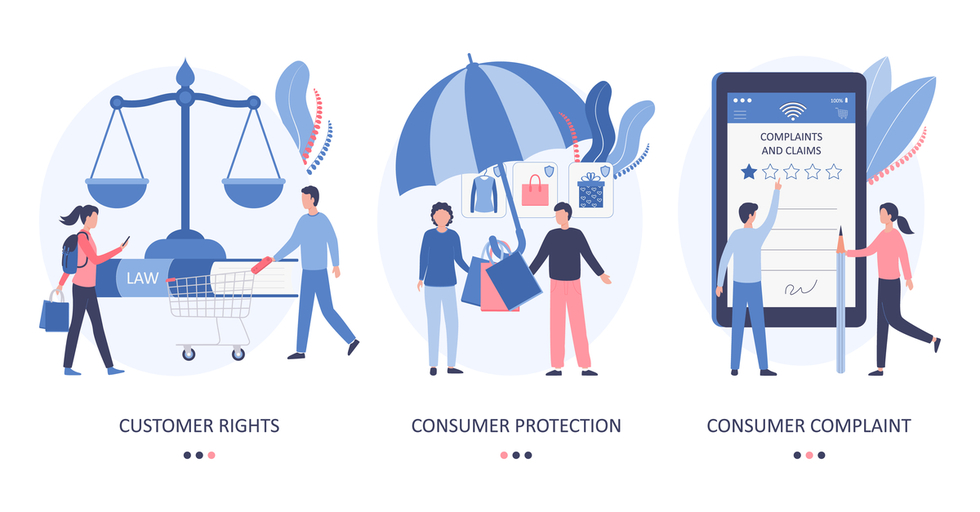Author Archives: Site Administrator

The Case of the Fish Sandwich: Greenwashing and the CLRA
Twenty-first-century American consumers are more aware than ever that their choices in the marketplace have ramifications for the climate, ecological balance, and animal welfare. Expectations are high for products and services that put the least possible strain on an increasingly fragile world. California consumers who find claims for environmental sustainability falling short of the… Read More »

CLRA Conditional Correction Offers
Section 1750 of the California Civil Code, known as the Consumer Legal Remedies Act (CLRA), is a statutory provision that protects consumers from businesses engaging in fraudulent conduct. Penalties for a CLRA can be steep, so the CLRA also gives businesses the ability to rectify the customer’s monetary complaint before a CLRA suit for… Read More »

Reasons Why Your Startup Should Not Begin as an LLC
When first beginning a company, many startup owners think that setting up the company as a Limited Liability Company (LLC) is the best option for the company’s structure. They believe that an LLC offers the owners protection from the company’s debts and liabilities similar to a corporation. And at the same time, the LLCs’… Read More »

Consumers Legal Remedy Act (CLRA): Advertising & Other Competitive Practices
Since the arrival of the Internet, followed by social media communications, marketing practices have changed dramatically. The Internet allows companies to describe their products with a huge megaphone. Social media provides targeted approaches. The Consumers Legal Remedy Act (CLRA) has remained relatively unchanged in its basic prohibitions and definitions of illegal practices. Interpreting the… Read More »

Consumers Legal Remedy Act (CLRA): False or Deceptive Representations
A successful business is typically built on a great product plus competitive marketing. Enthusiasm for a product can sometimes lead to overstating to boost sales. When this happens, a customer may get hurt. California’s consumer protection law — CLRA — provides ways for individual consumers (“private right of action”) and qualified consumer groups (“class… Read More »

Consumers Legal Remedy Act (CLRA): Agreements & Contracts
The CLRA governs both purchase and lease agreements for goods or services purchased or leased “for personal, family, or household purpose. The agreement doesn’t have to be an enforceable contract and doesn’t have to be in writing. Representations: Fair or Deceptive? The CLRA spells out a number of unfair representations. It’s dishonest to represent… Read More »

Consumers Legal Remedy Act (CLRA): Solicitations, Social Services & Veterans Affairs
The CLRA casts a wide net to rein in deceptive sales and marketing practices: misrepresentations and downright fraudulent schemes to delude vulnerable and even cautious consumers. Certain CLRA provisions include exceptions to assure prohibitions don’t restrict otherwise permissible activities or conflict with existing federal and state laws. For business managers, these exceptions can be… Read More »

How to Spot a Phony CLRA Letter and What to Do with It
Ever hear of the Consumers Legal Remedies Act? California enacted this statute—§§ 1750 et seq. of the California Civil Code—in 1970. It protects consumers from being taken advantage of by businesses and allows consumers who have been deceived in this way to recover damages. This law covers a wide span of fraudulent acts, 27… Read More »

How to Handle a False CLRA Complaint
The California Consumer Legal Remedies Act (CLRA) protects consumers. A CLRA claim may allege a business has been involved in deceptive business practices. Consumers may collect damages from a business found to have violated the CLRA if they can prove their allegation. When a consumer makes a false or exaggerated claim, your business has… Read More »

Is the CLRA Demand Letter You Received a Prelude to a Class Action?
Consumers may file a Consumers Legal Remedy Act (CLRA) violation against a California business. You may also receive notice that someone has filed a lawsuit against you when you receive a demand letter. Don’t ignore the demand letter. Demand Letters may Lead to a Class Action When you get a demand letter, review it… Read More »

